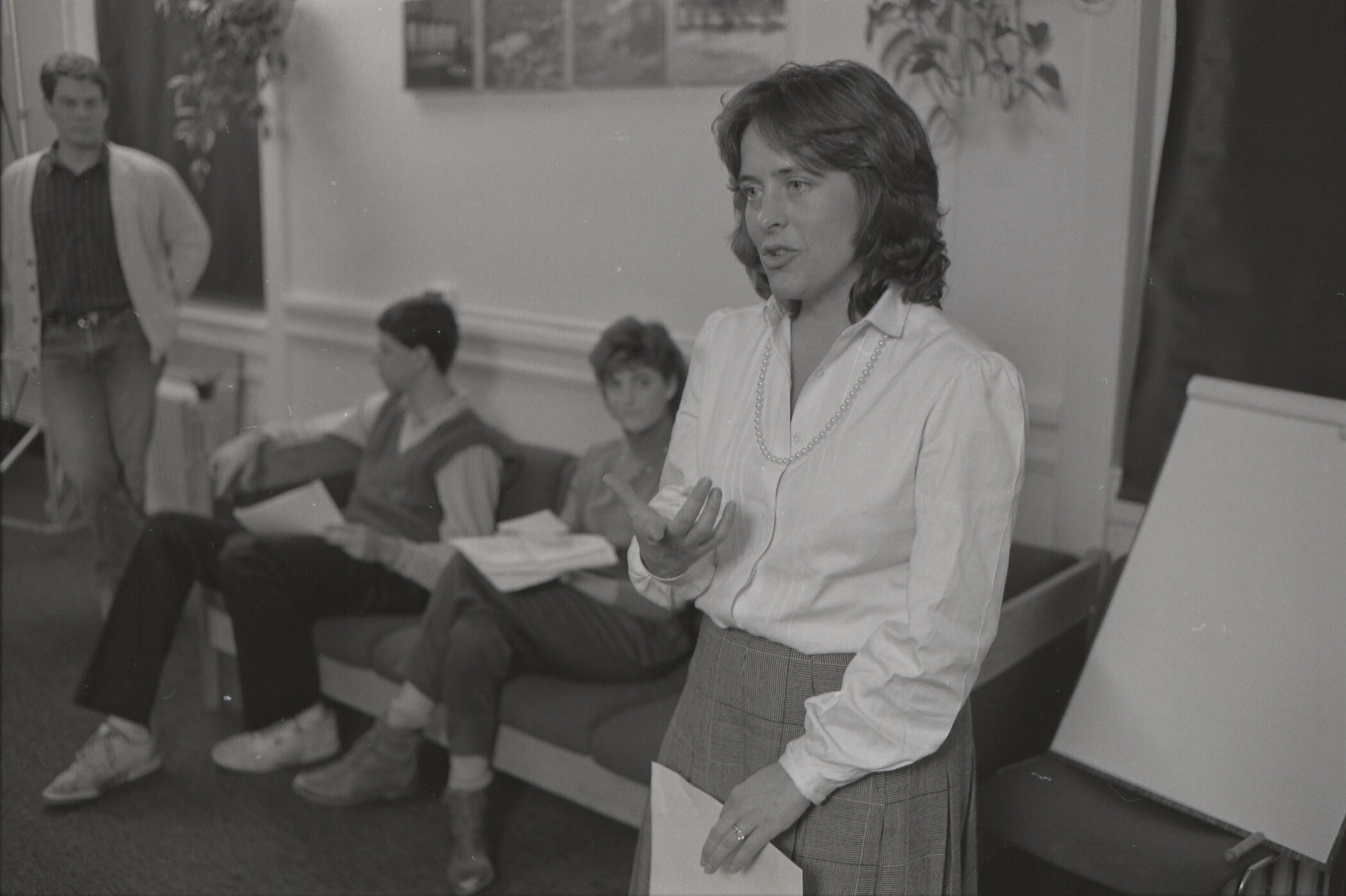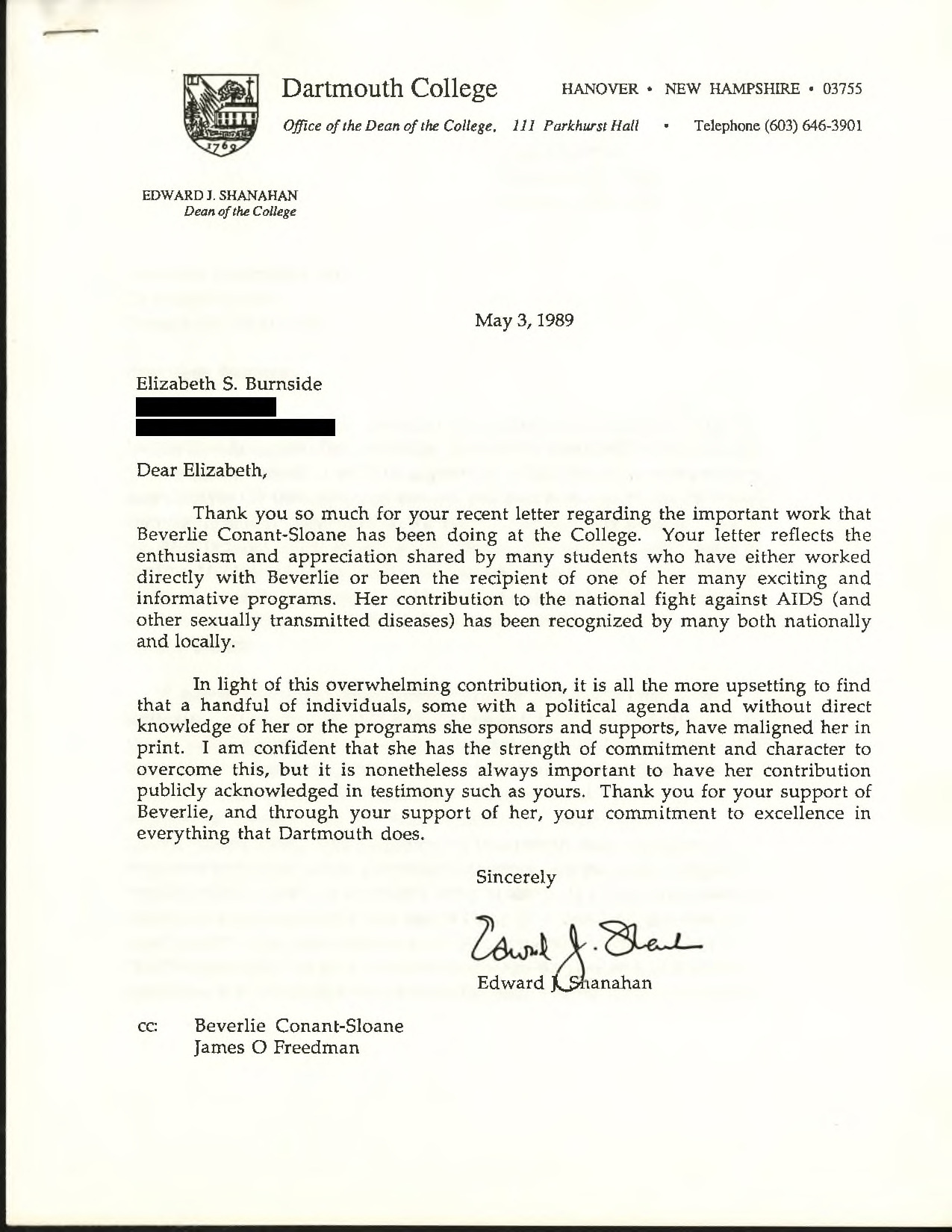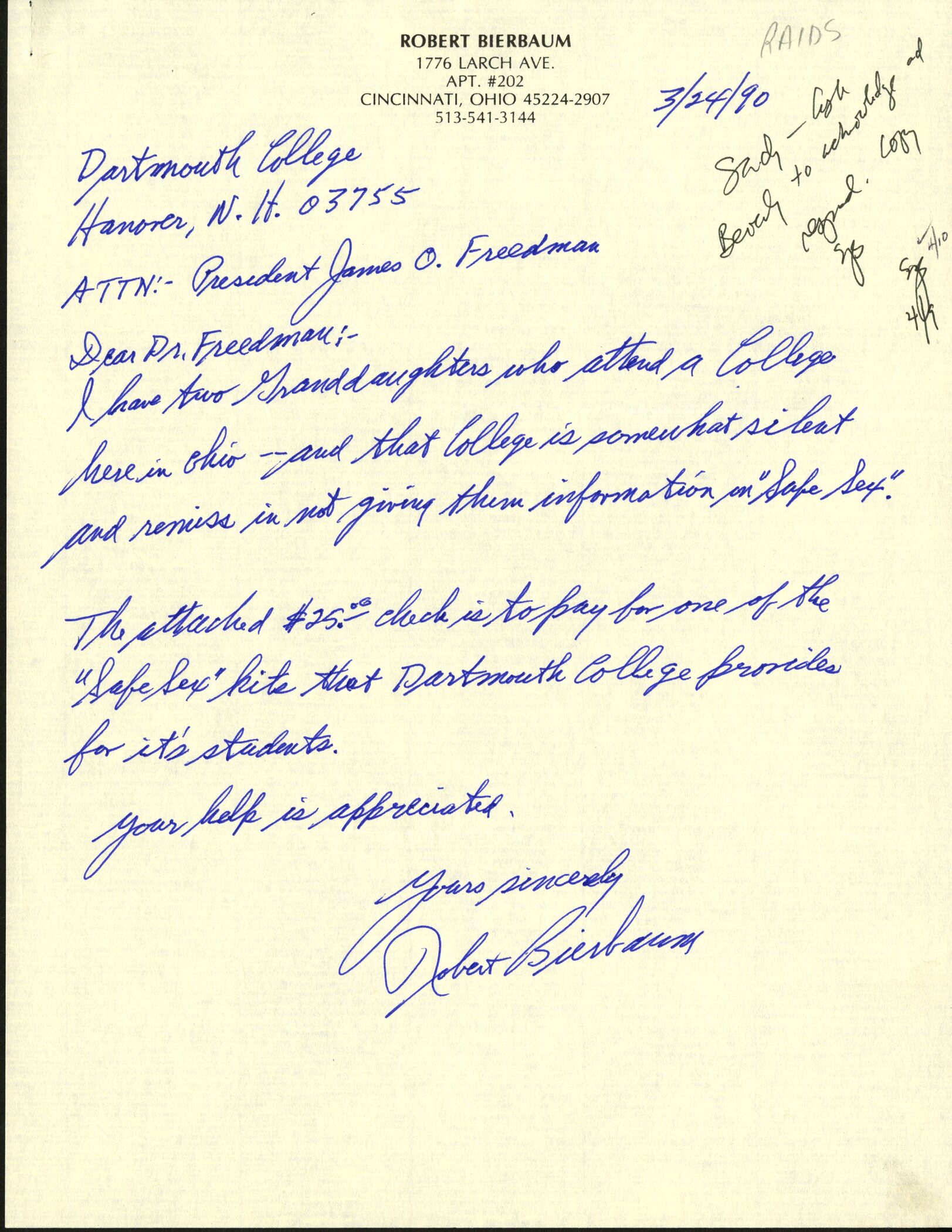Success with Safer Sex
Beverlie Conant Sloane evaluated the AIDS education program at Dartmouth in her 1988 paper “AIDS Education for College Students: Strategies for Behavior Change.” The paper explored three interventions – free condoms, the Safer Sex kits, and the RAID roadshow – and their efficacy in changing sexual practices of students. The data showed that out of the three, the RAID roadshow had the most effect. 93% of students who had seen the roadshow practiced safer sex some of the time, compared to 72% of those who had not, demonstrating the efficacy of peer AIDS education for which RAID had been widely praised. Interestingly, the kits were found to have no statistically significant impact on changing students’ behavior, though Conant Sloane believed that they were important in kicking off the conversation about safer sex. Condoms were also found to be effective, as students who took condoms were more likely to practice safe sex.
Although the paper performed a successful quantitative assessment of the Health Education office’s programming, Conant Sloane’s impact reached far beyond the page. She was honored with Common Sense’s first Orton-Scherman award, given to “the one person who has done the most during the preceding year to make a positive improvement to life at Dartmouth” in 1987 for her work with the Safer Sex kits. In the same year, she was profiled in the New York Times as a groundbreaking health educator and praised for her intensely personal style of teaching, warm affect, and pragmatic approach toward sex education.10 One past colleague described Beverlie, saying, “she has a terrific blend of chutzpah and compassion that makes her very effective…she connects with people.”
“Dr. Conant-Sloane’s sensitive treatment of this health issue has been of immeasurable value to the Dartmouth students.”
When Jeffrey Hart criticized Conant Sloane in a 1989 article about the ‘condom etiquette’ portion of the RAID roadshow, many students were quick to jump to her defense. One wrote to Dean Shanahan, stressing that “Dr. Conant-Sloane’s sensitive treatment of this health issue has been of immeasurable value to the Dartmouth students.” Beth Burnside, one of the original founders of RAID, remarked that working with Conant Sloane on the roadshow was “the single most rewarding aspect of [her] Dartmouth career.”
Conant Sloane left Dartmouth in the 1990s and passed away in 2007. A giving mentor, extraordinary woman, and dedicated advocate, her impact is still felt on campus today. From advocating for free condoms in student dormitories to organizing RAID shows all over the country, Dartmouth owes much of its groundbreaking AIDS policy to Beverlie’s tireless work.
_______________________
10 Morgan, Thomas. “At Dartmouth, A Helping Candor.” New York Times. 08 November 1987. https://www.nytimes.com/1987/11/08/education/at-dartmouth-a-helping-candor.html
From the Archives
Click on an image to access the full document, audio-visual components, and/or metadata associated with that item.
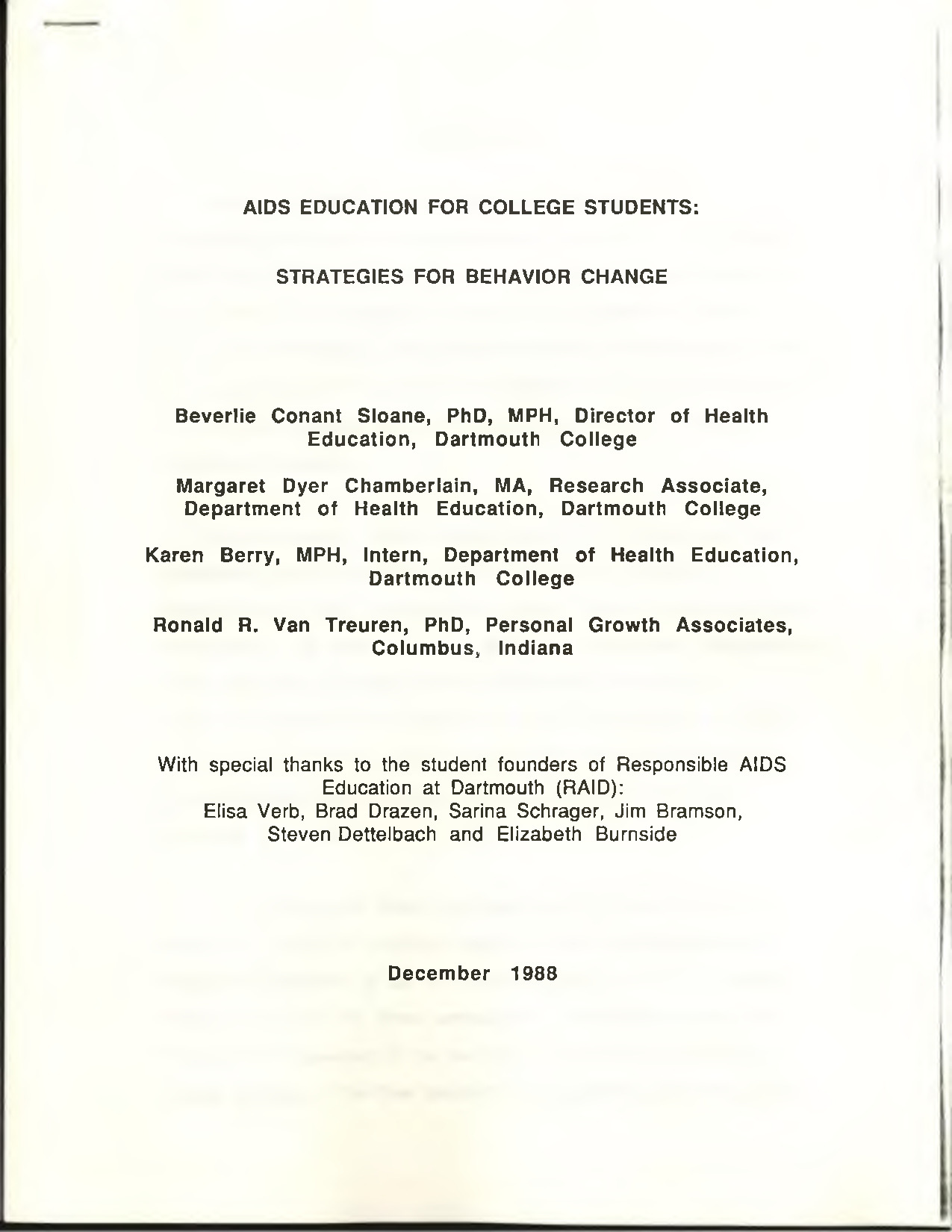
This paper is the result of a study conducted by Beverlie Conant Sloane et al. to evaluate the efficacy of various educational interventions on safer sex practices at Dartmouth College.
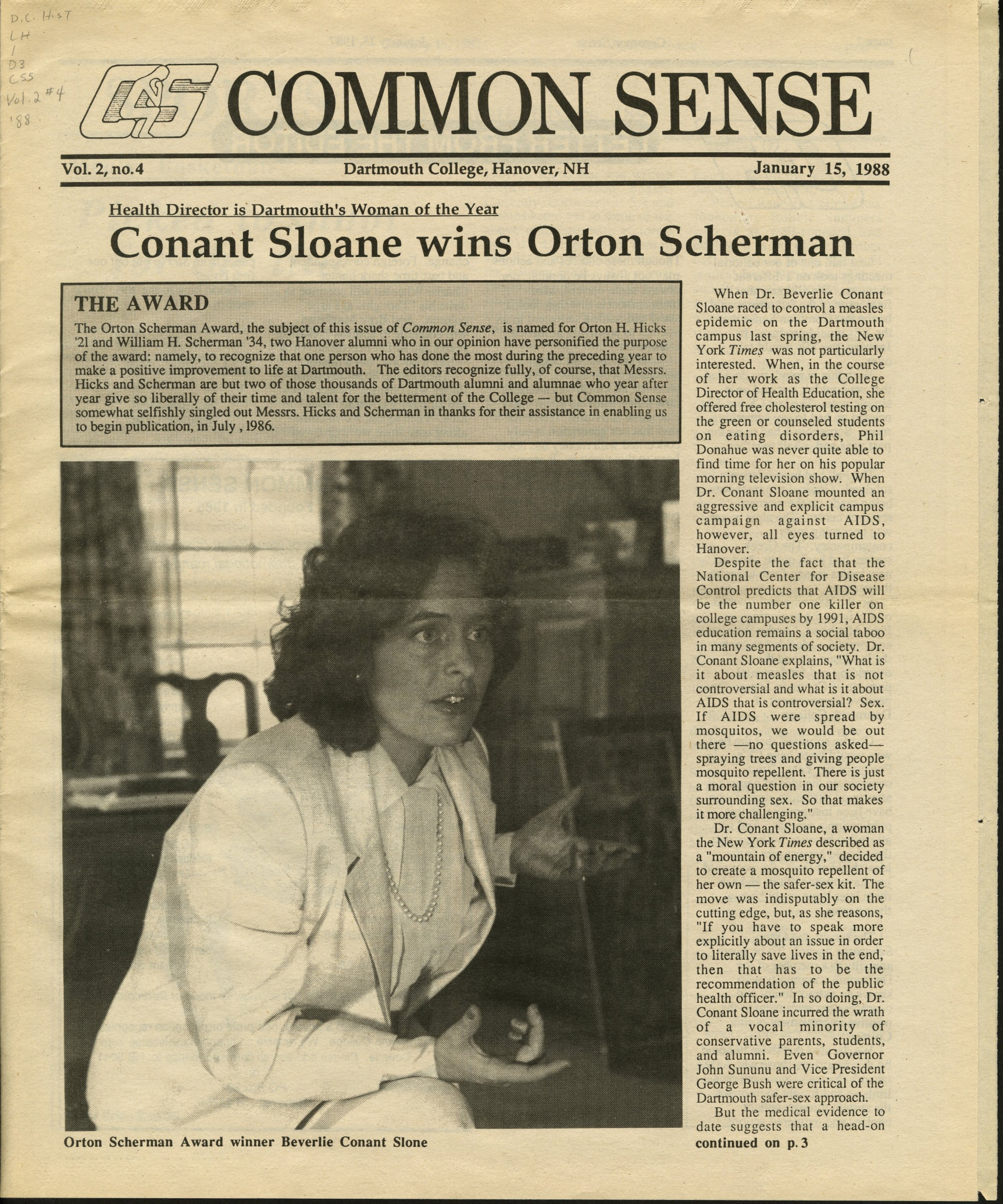
Common Sense, a student publication, awarded Beverlie Conant Sloane the Orton-Scherman award for creating a positive impact on life at Dartmouth through her work in AIDS prevention and sex education.
 Historical Accountability Student Research Program
Historical Accountability Student Research Program
